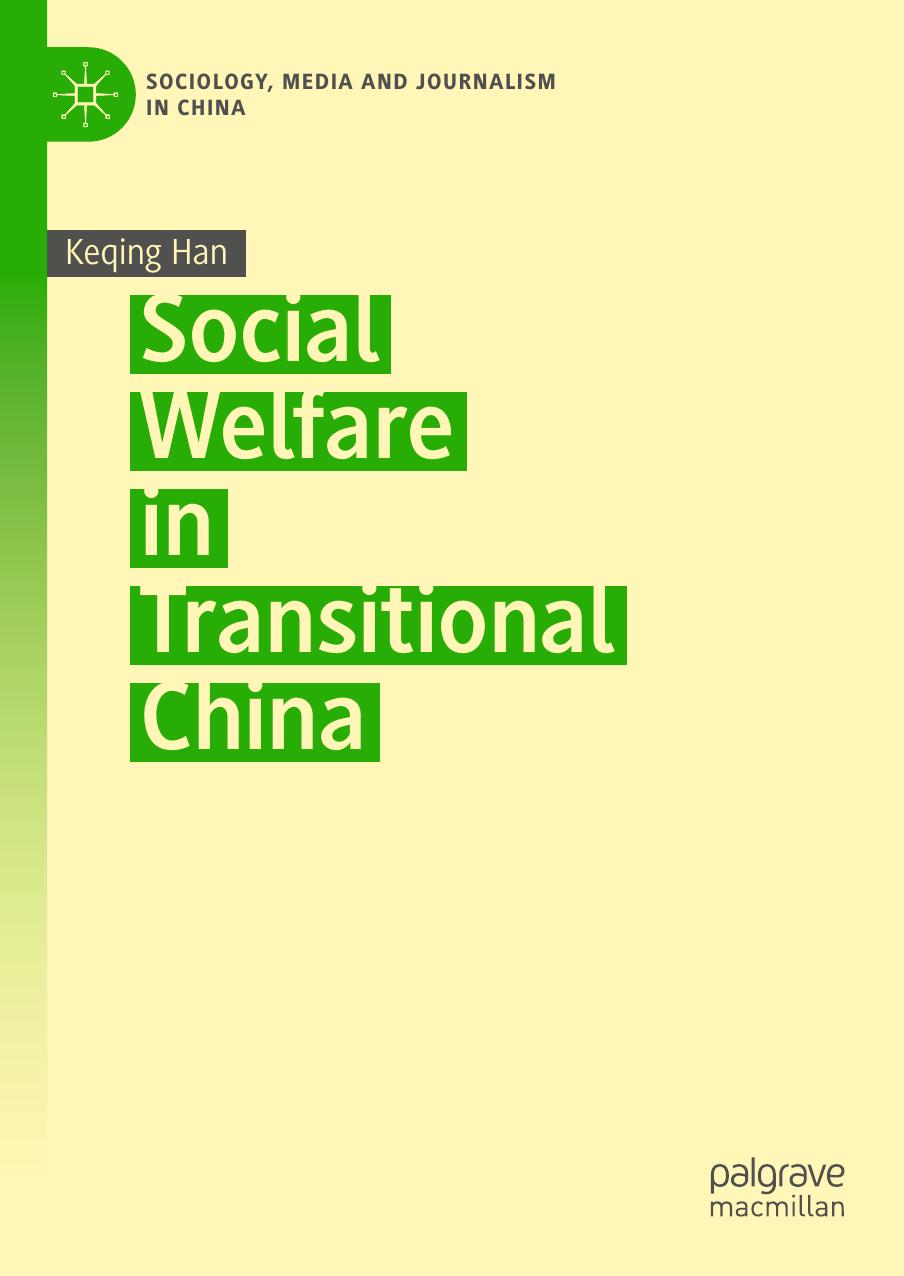Social Welfare in Transitional China by Keqing Han

Author:Keqing Han
Language: eng
Format: epub, pdf
ISBN: 9789813296602
Publisher: Springer Singapore
9.2.2 Changes in the Rural Elderly Welfare
Respecting the old and caring for the young has all along been a Chinese tradition. As early as the Han Dynasty (202 B.C.–220), the Chinese government introduced a preferential policy for the people aged above 70, i.e., a special envoy would send them condolences on behalf of the emperor and grant them with some cloth, wine and meat. Zhu Yuanzhang, first Emperor of Ming Dynasty (1368–1398), issued an edict in 1386 to stipulate that “the poor people aged above 80 will be granted with 30 kg of rice, 2.5 kg of meat and 18 kg of wine each month; those aged above 90 will receive additional 33 m of silk and 0.6 kg of cotton wool”. 12 In both ancient and modern China where farmers were acting as the main body of society and small-scale peasant economy as the basic means of production, the family seemed like the cells of society and undertook such social functions as material production, population reproduction and provision, the elderly care relied on such informal system as family security. Since 1949, China’s elderly welfare system is not only limited to the urban area, but somewhat extends to the rural population.
(1) Land security and family supporting on the basis of individual economy
After the founding of new China, the key tasks of the state in rural areas were to carry out land reform and restore production, i.e., to confiscate the land of landlords and divide it equally among the poor and middle peasants, develop agricultural production and increase farmers’ income. Meanwhile, the state was attempting to establish a new social welfare system for rural areas. According to the Common Program of the Chinese People’s Political Consultative Conference (1949) and the Constitution of the People’s Republic of China (1954), all workers, when they enter their old age, suffer from diseases or lose labor ability, are entitled to obtaining material help; the state will launch social insurance, social assistance and public health undertakings, and gradually expand their coverage, so that the workers will access to such welfare treatment. In 1949, the Ministry of Internal Affairs (predecessor of the Ministry of Civil Affairs) was established to be one of the main management authorities of China’s social welfare cause. It was responsible for rural disaster relief, social assistance, preferential treatment and resettlement. By this time, China had seen its welfare system for rural people guaranteed by the constitution, implemented by a unified management bureau, and actively supported by government, which were new features of the institutional architecture and arrangement of the social welfare system. During this period, the government organized large-scale relief activities in rural areas, such as distributing relief food and funds, launching an austerity campaign and arranging disaster relief through industrial production, which played a positive role in stabilizing people’s lives and social order. In addition, the completion of land reform and gradual recovery of rural economy, as well as formation of agricultural production mutual-aid teams and primary agricultural cooperatives, greatly enhanced farmers’
Download
Social Welfare in Transitional China by Keqing Han.pdf
This site does not store any files on its server. We only index and link to content provided by other sites. Please contact the content providers to delete copyright contents if any and email us, we'll remove relevant links or contents immediately.
The Art of Coaching Workbook by Elena Aguilar(51151)
Trainspotting by Irvine Welsh(21633)
Twilight of the Idols With the Antichrist and Ecce Homo by Friedrich Nietzsche(18618)
Fangirl by Rainbow Rowell(9226)
Periodization Training for Sports by Tudor Bompa(8249)
Change Your Questions, Change Your Life by Marilee Adams(7733)
This Is How You Lose Her by Junot Diaz(6872)
Asking the Right Questions: A Guide to Critical Thinking by M. Neil Browne & Stuart M. Keeley(5752)
Grit by Angela Duckworth(5597)
Red Sparrow by Jason Matthews(5462)
Paper Towns by Green John(5174)
Room 212 by Kate Stewart(5102)
Ken Follett - World without end by Ken Follett(4719)
Housekeeping by Marilynne Robinson(4434)
The Sports Rules Book by Human Kinetics(4377)
Double Down (Diary of a Wimpy Kid Book 11) by Jeff Kinney(4257)
Papillon (English) by Henri Charrière(4252)
The Motorcycle Diaries by Ernesto Che Guevara(4084)
Exercise Technique Manual for Resistance Training by National Strength & Conditioning Association(4057)
